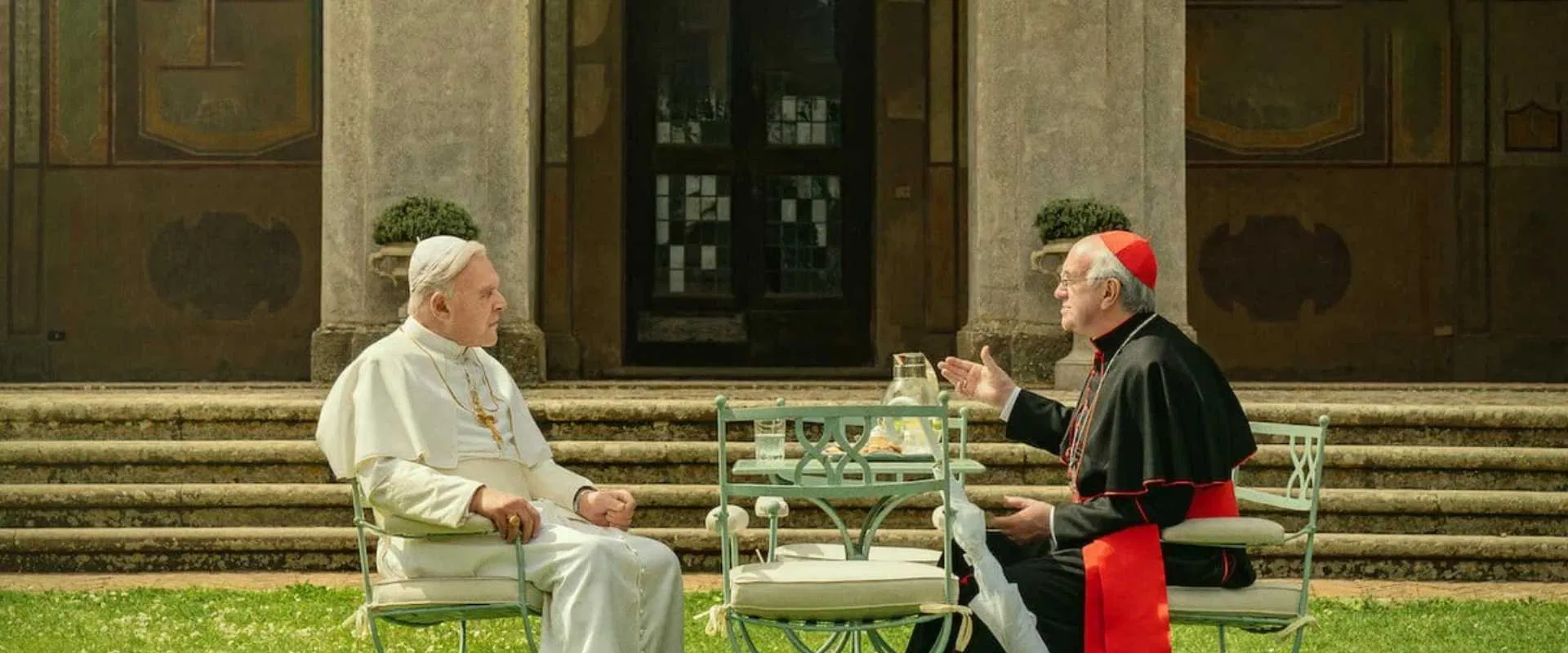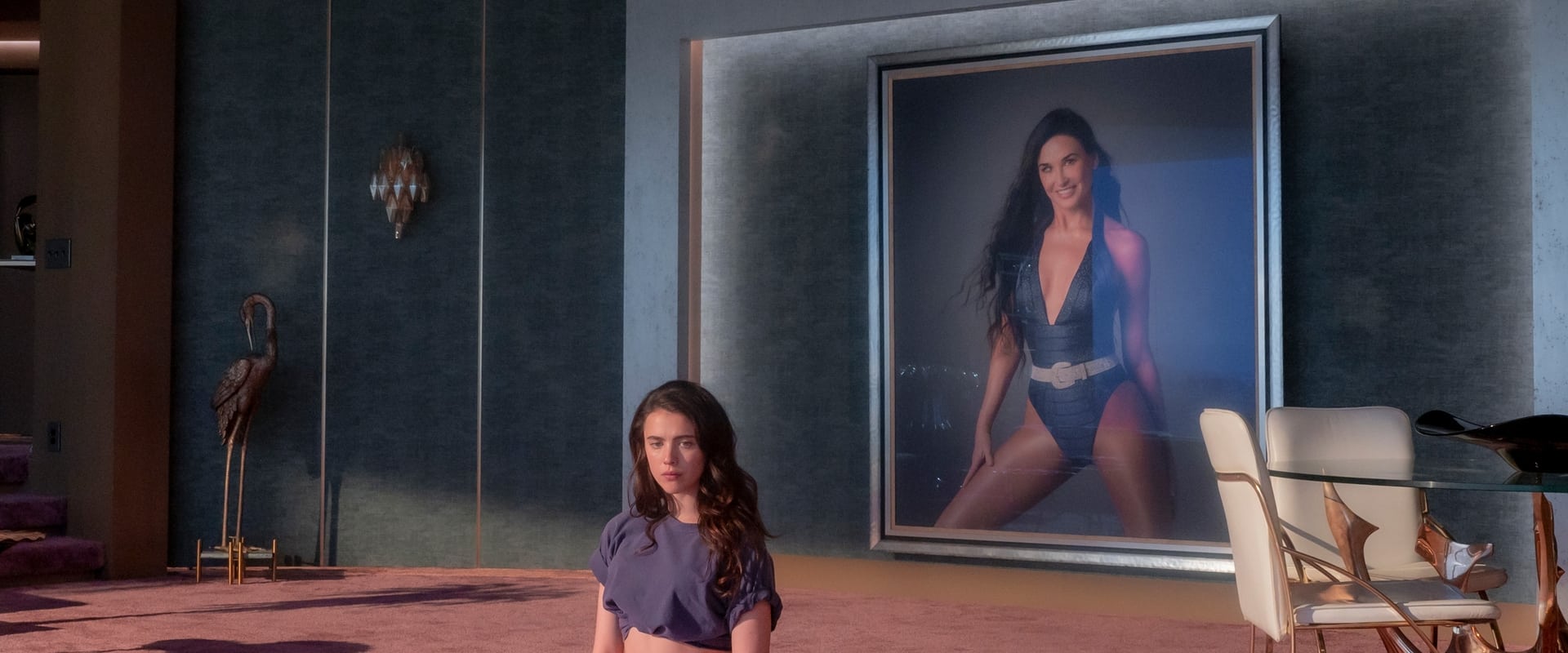There’s a peculiarly modern grandeur in the way The Two Popes pivots between the corridors of the Vatican and the haunted lamplight of Argentine history, but it’s not the stateliness of ancient marble: it’s the flicker of digital immediacy, the hum of a restless present intruding on institutional ritual. Director Fernando Meirelles takes a story marbled with centuries of doctrinal posturing and, with sly confidence, drapes it in the colors of both a Netflix true-crime doc and an old-master fresco. The contrast is invigorating, sometimes jarring—but rarely less than beautifully framed.
From the opening scenes, Meirelles orchestrates his film with the sureness of a director who knows his camera is as much protagonist as the papal titans it follows. The color palette shifts—gray Vatican austerity splashed against Argentina’s bruised, sunlit memories—create a double vision of a church wrestling with itself, past and present, tradition and transformation. The dictatorship flashbacks arrive draped in a smoky, almost guilty nostalgia: the institutional church as both sanctuary and accomplice. If at times this feels a touch schematic—scenes weighted like Stations of the Cross—it’s forgivable, because the film never forgets the intimacy at its core.
That intimacy: two men, locked in dialectic. The casting—Jonathan Pryce as the future Francis, Anthony Hopkins as Benedict XVI—has the staccato pleasure of inspired mimicry, but this is no simple impersonation contest. Each actor inhabits the role with the gravity that only decades of paid-up British thespian tradition can bring, while also making room for humility and wit. Pryce’s Bergoglio is all bustling compunction, a man forever stepping lightly around his own pain; Hopkins, by contrast, plays Benedict as both sphinx and saturnine schoolmaster, the voice dry as a text, eyes darting with all the secret anxieties of institutional rot.
The pleasure of The Two Popes is dialogue—honest, wounded, yearning speech. Most films that advertise “just two people talking” serve up theatricality disguised as profundity. Not here. This is the rare example where conversation—real, investigative, sprawling—matters, and you feel it. The screenplay (Anthony McCarten) lets arguments overlap, words fumble, points of doctrine become weapons and olive branches in the same breath. For a brief two hours, we are reminded that, yes, in a world gut-punched by cynicism, speech can be redemptive.
If only the film could trust itself to stay in that glorious realm forever. The extended flashbacks to Bergoglio’s past—in particular, his role during the Argentinian junta—are necessary, perhaps, for historical texture, but they rob The Two Popes of its crackling present-tense. Meirelles wants us to see the future pope’s conscience being forged in the fires of political shame, but the effect is diversionary—the plot wanderings recede from the tightrope of debate, slackening the tension that makes the film compelling.
And yet, its central message endures: That faith—like power, like the self—is a living thing, fated to adapt or die. The film’s quietest gift is its recognition that the church is a forest of men and dogmas bending in the hurricane of history. A stick too rigid will break; one that bends, learns, and endures. Hardly original, perhaps, but executed with enough earnestness and twinkle to make us believe anew.
It would be easy, also, to accuse the film of simple saint-making, handing us neat binaries—heroes and villains—particularly in its opening half. There’s dramatic shorthand here, the need to get us to the big duel. But if you look beyond the script’s occasional catechism, you’ll find that Meirelles is less interested in hagiography than in the incompleteness of men entrusted with impossible burdens. Maybe that’s why the film lingers: it cares about the fragility beneath vestments.
One wishes the music had been as memorable as the craft elsewhere; it’s proficient, not transcendent. But these are minor quibbles in a film that embraces the weight and scale of its subject without ever becoming ponderous. In the end, The Two Popes works not because it poses answers, but because it lets conversation wound. You’re left, unexpectedly, with hope—not just for two popes, but for a world in which honest dialogue might still, against all odds, matter.


